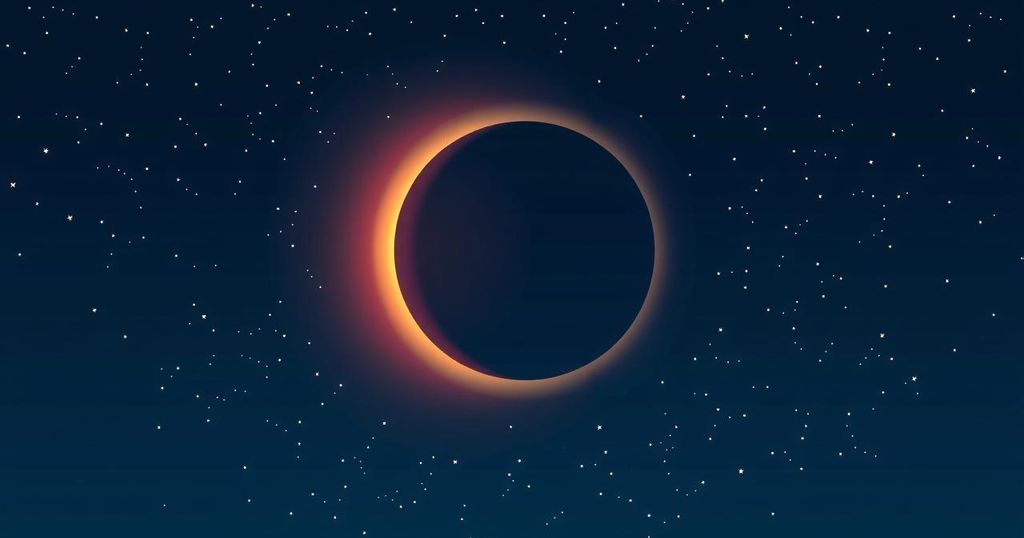Upcoming 2025 Solar Eclipse: Visibility and Key Dates for India
The first solar eclipse of 2025 will occur on March 29, but it will not be visible from India. The event is a partial solar eclipse peaking at 4:17 PM IST. Additionally, two lunar eclipses are anticipated this year, including a ‘Blood Moon’ on March 14, which will be similarly invisible from India.
The first solar eclipse of 2025 is scheduled for March 29, occurring when the Moon is near Earth, passing directly between the Earth and the Sun. This astronomical event will result in a partial solar eclipse, obscuring only a section of the Sun. The eclipse will commence at 2:20 PM IST and conclude at 6:13 PM, with its peak occurring at 4:17 PM, according to NASA.
Visibility for this solar eclipse will extend across Asia, Africa, Europe, the Atlantic Ocean, the Arctic Ocean, North America, and South America; however, it will regrettably not be visible from India. Observing a solar eclipse directly poses serious risks, including potential retinal burns and irreversible eye damage, thus appropriate eye protection is crucial.
NASA has forecasted two solar eclipses for 2025: the first on March 29, and the second anticipated to occur on September 21. Alongside these solar events, there will be two lunar eclipses this year, starting with one on March 14, coinciding with the festival of Holi. This lunar eclipse will begin at 9:29 AM and end at 3:39 PM, peaking at 12:29 PM; unfortunately, this event will also not be observably visible from India.
The March 14 lunar eclipse will be a “Blood Moon,” a phenomenon where the Earth obstructs sunlight from reaching the Moon, causing it to appear red as the Earth’s atmosphere bends some sunlight towards it while absorbing other colors. A second lunar eclipse is slated for September 7, 2025.
In summary, the forthcoming solar eclipse on March 29, 2025, will not be visible from India, and due precautions should be taken due to the dangers of direct observation. While two solar eclipses are expected in 2025, lunar eclipses will also occur, including a notable ‘Blood Moon’ event in March. It is advised to remain aware of these celestial phenomena and their visibility.
Original Source: www.ndtv.com




Post Comment